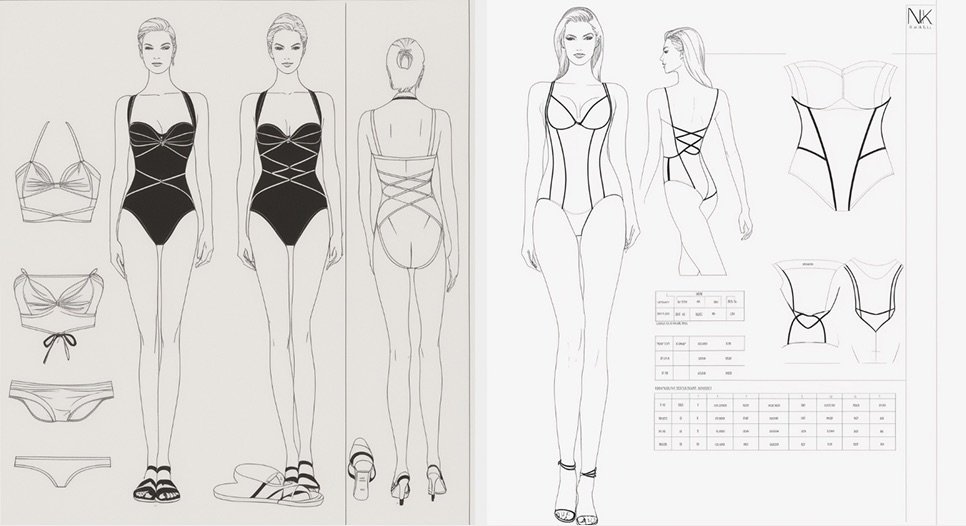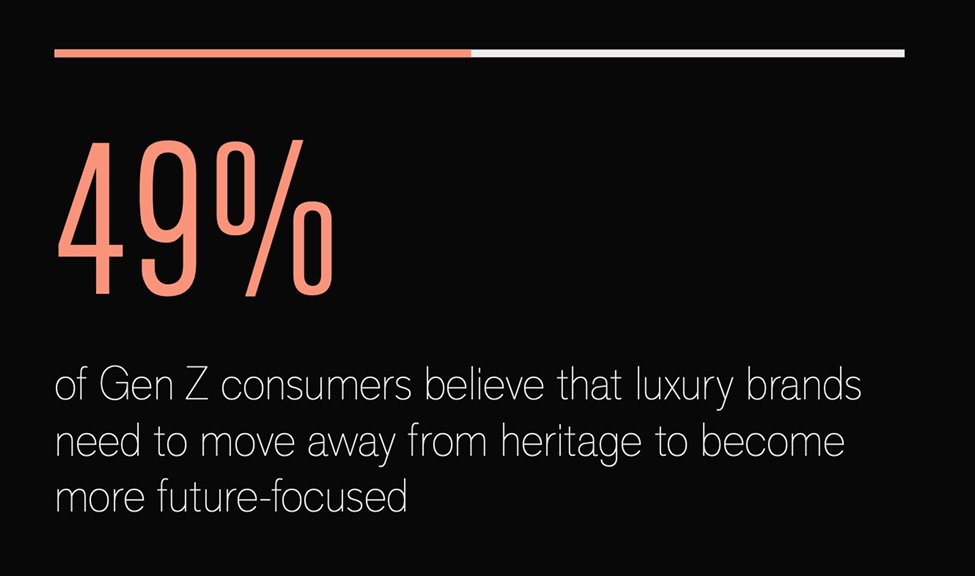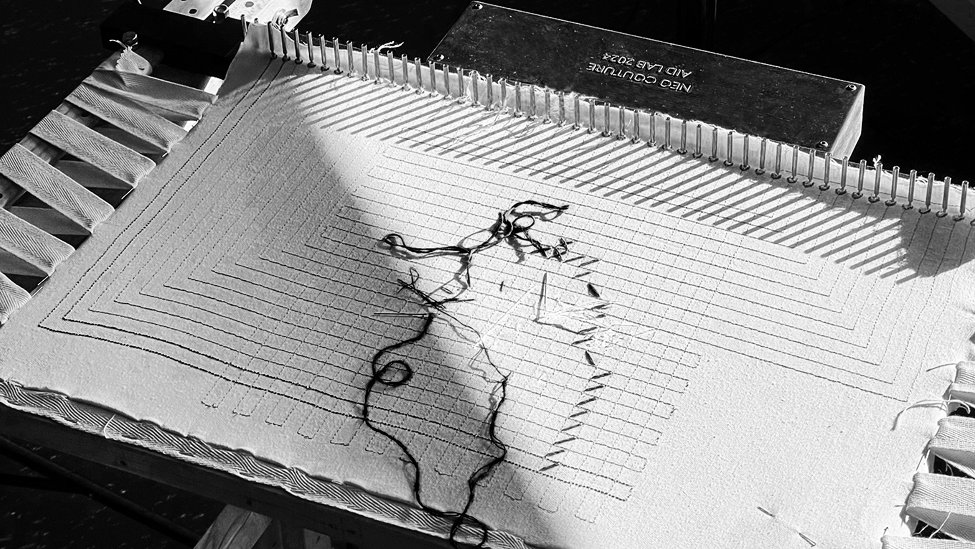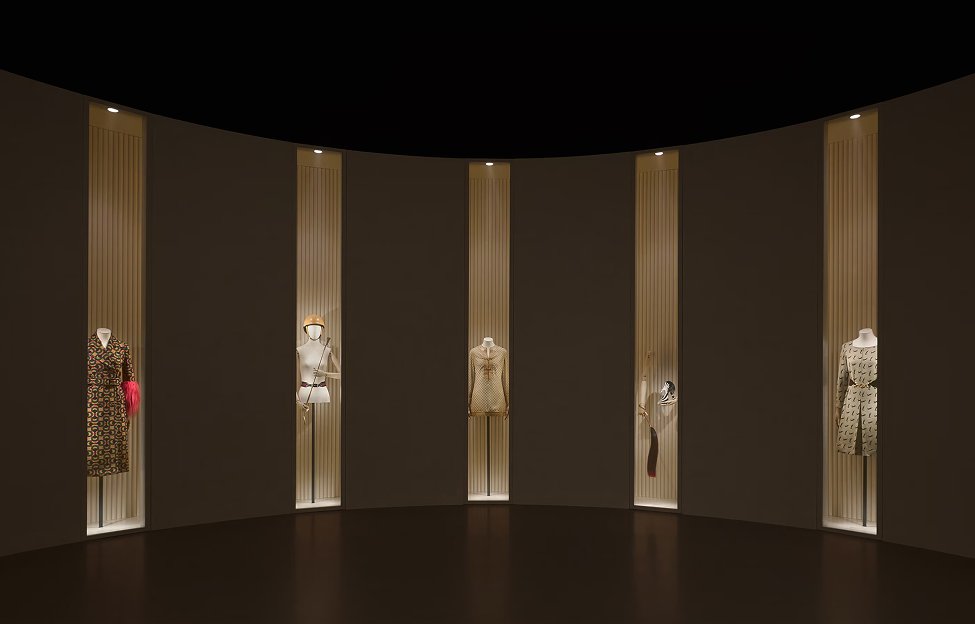- Heritage becomes dynamic through AI-powered archives
- Digital preservation goes beyond visuals to craft and technique
- AI can blend multiple creative legacies coherently
- Tomorrow's archives will include multisensory elements
- Brand storytelling evolves from static history to living memory
Key takeaway: AI transforms brand heritage from something to protect into something to actively leverage for future innovation.
The delicate art of managing heritage has always been a balancing act. Today's Gen Z perfectly illustrates this tension: While 49% believe luxury brands should break from tradition 1, the same cohort demonstrates a fascinating obsession with ‘90s and noughties brand figureheads, drawn to their myth-making, spectacular presentations, and seemingly inimitable creative visions.


2Maison Meta created an AI Design CoPilot model, trained on over 40 years of Norma Kamali’s own design and copyrighted archive.
This paradox confirms an immutable truth: Brand lore matters. And AI is presenting revolutionary ways to leverage it. Artificial intelligence is transforming how brands create and manage their archives — from digitizing never-before-seen prototypes and preserving physical collections in 3D virtual form to recording the PR campaign assets that promoted them.
Take the groundbreaking collaboration between fashion designer Norma Kamali and Meta Maison, “the world's first generative AI creative agency” 2. Their AI Copilot tool, trained on Kamali's 40-year archive, weaves her creative philosophy through every aspect of the brand's future design thinking. It generates new designs drawing on house codes and subtle signatures while creating a robust repository of assets for succession planning.

1From the Revolt report on the luxury redefined by the sustainability era — link
For brands with eponymous leaders, this technology offers a pathway to perpetuity. For houses with multiple creative directors — think Louis Vuitton or Gucci across decades — it provides an opportunity to connect creative threads cohesively. Meta Maison is already exploring this potential with a major hotel group, developing concepts that could blend several star designers' quintessential perspectives.

3 Neo-Couture seeks to harness digital technology to preserve and enhance traditional craftsmanship.
4 Ask Dalí at the Dalí Museum in St. Petersburg, Florida, allows visitors talk to the famous surrealist artist via an AI-generated version of his voice.
There’s even the possibility of sanctifying design signatures in ways that travel well beyond the visual. In London, The Royal College of Art's Neo-Couture Project is using AI to codify design houses' subtle craft traits — unique stitching methods, fabric draping techniques 3, and distinctive cutting approaches. This creates both a unique ID for archiving and a safeguard against plagiarism, addressing one of the very challenges that next-wave generative AI has introduced.
No part of the brand ecosystem will go untouched, including physical destinations. Florida's Salvador Dalí Museum demonstrates this with their “Ask Dalí” feature, where visitors engage in conversations with an AI version of the master 4. The technology is equally applicable to brand ambassadors, from historical sporting legends to contemporary music icons, as demonstrated by FKA twigs' multilingual avatar.
5To develop their fragrances, ØTHERS ran a study tracking biomarkers including brain activity, respiration rate, heart rate variability, and arousal.
As we enter this new era of “asset fluidity,” brands must reconsider what constitutes brand assets. With the rise of multisensorial campaigns – from ØTHERS' functional fragrances 5 paired with resilience-boosting soundtracks to Gucci's recent Cosmos exhibition with its in-app audio guide 6 — tomorrow's brand archive will extend far beyond logos and campaigns to encompass sonic, haptic, olfactory, and even neurogastronomic elements.

6 For the first time, pieces from the Gucci Archive travel out of their home in Florence, bringing the magic and creativity of the House to life.